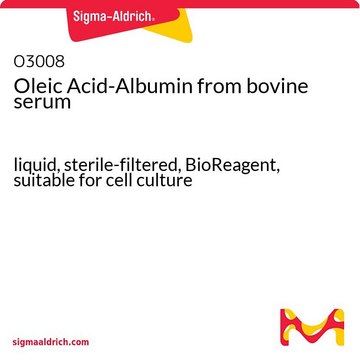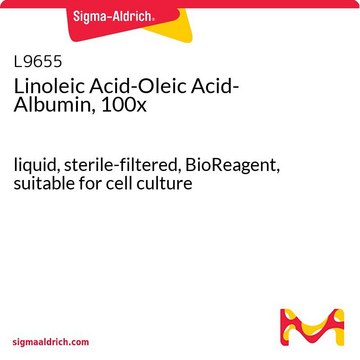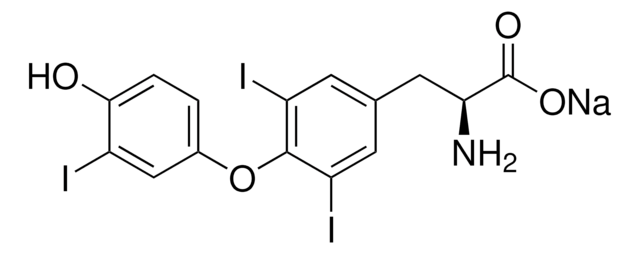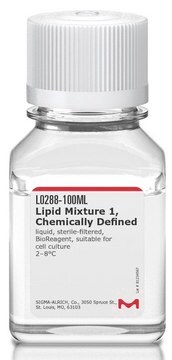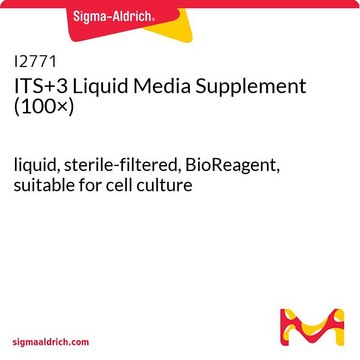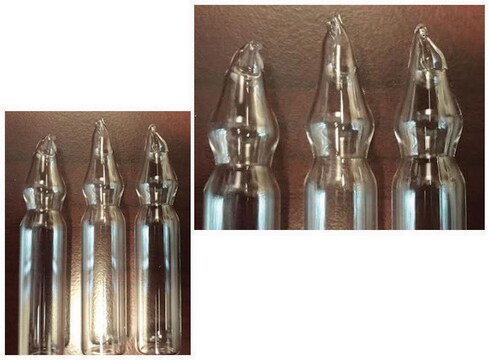L9530
Linoleic Acid-Albumin from bovine serum albumin
liquid, sterile-filtered, BioReagent, suitable for cell culture
Synonyme(s) :
Linoleic Acid-Albumin from BSA
About This Item
Produits recommandés
Description
Contains 2 moles linoleic acid per mole BSA
Stérilité
sterile-filtered
Gamme de produits
BioReagent
Forme
liquid
Concentration
100 mg/mL BSA in DPBS
90-120 mg/mL protein (biuret)
Technique(s)
cell culture | mammalian: suitable
Impuretés
≤400 EU/mL endotoxin
Température de stockage
2-8°C
Description générale
Application
Autres remarques
Code de la classe de stockage
10 - Combustible liquids
Classe de danger pour l'eau (WGK)
WGK 3
Point d'éclair (°F)
Not applicable
Point d'éclair (°C)
Not applicable
Équipement de protection individuelle
Eyeshields, Gloves
Faites votre choix parmi les versions les plus récentes :
Déjà en possession de ce produit ?
Retrouvez la documentation relative aux produits que vous avez récemment achetés dans la Bibliothèque de documents.
Les clients ont également consulté
Articles
Importance and uses of linoleic acid in serum-free eukaryotic, including hybridoma and Chinese Hamster Ovary (CHO) cell, cultures
Notre équipe de scientifiques dispose d'une expérience dans tous les secteurs de la recherche, notamment en sciences de la vie, science des matériaux, synthèse chimique, chromatographie, analyse et dans de nombreux autres domaines..
Contacter notre Service technique